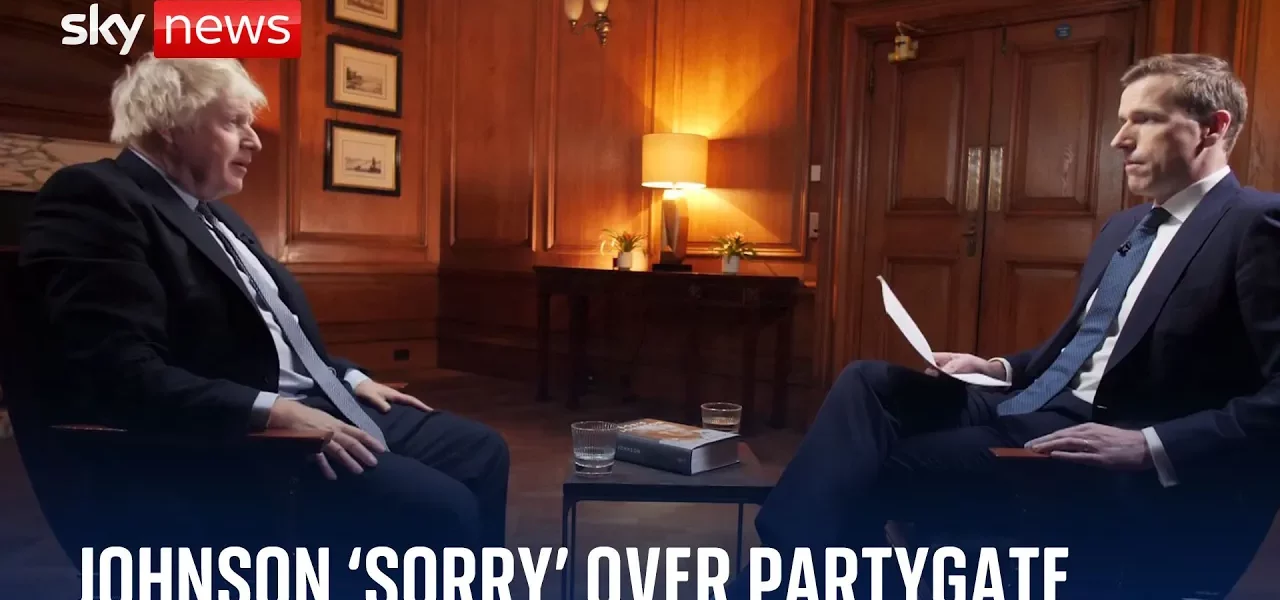Unpacking the Party Gate Scandal: Public Reactions and Political Accountability

In this article, we delve into the complexities of the Party Gate scandal, exploring the public’s reactions to government actions during the COVID-19 pandemic, and the implications of political apologies. This examination provides insights into the balancing act between governance and public perception.
Introduction
The Party Gate scandal has ignited widespread debate across the UK, reflecting deep public discontent regarding the government’s approach to COVID-19 restrictions. The interviews and discussions surrounding this issue have revealed a stark contrast between the officials’ actions and public expectations. This article aims to dissect the key elements of the scandal, focusing on the nature of apologies, public sentiment, and the broader political landscape.
The Nature of Apologies in the Party Gate Scandal
Apologies from political figures are often viewed through a critical lens, especially when they stem from public outrage. In the context of the Party Gate scandal, the narrative has evolved, leading to a reconsideration of previous statements made by officials.
Initial Apologies and Public Perception
The initial apologies issued by government officials were intended to address the public’s anger. However, these apologies sometimes seemed insufficient as they lacked specificity and accountability. Key points include:
- Vagueness in the apology led to public confusion.
- Perceived insincerity affected trust in government.
- The need for more tailored responses to specific grievances.
Retraction and Clarification of Statements
As discussions progressed, some officials appeared to retract or modify their earlier apologies, which sparked further backlash. This change in tone raised questions about the authenticity of the initial admissions of guilt. Important aspects include:
- The implications of backtracking on previous statements.
- The challenge of repairing public trust after conflicting messages.
- The potential political fallout from perceived dishonesty.
Public Reactions and Sentiment
The public’s reaction to the Party Gate scandal has been marked by a mixture of outrage, confusion, and disappointment. Understanding these sentiments is crucial for analyzing the broader impact on political accountability.
Outrage Over Rule-Breaking
Many citizens felt betrayed upon learning about the rule-breaking events that transpired during lockdowns, especially when they adhered to the guidelines. The key points include:
- A stark contrast between government actions and public compliance.
- The emotional toll on individuals who sacrificed personal freedoms.
- The demand for accountability from those in power.
Dissection of Public Compliance
Interestingly, the public’s initial willingness to comply with restrictions was both commendable and puzzling. This section explores why citizens were so eager to follow the rules:
- Historical patterns of compliance during pandemics.
- The psychological need for structure and safety amidst uncertainty.
- Social pressure and community norms influencing behavior.
Political Implications and Future Consequences
The fallout from the Party Gate scandal extends beyond public sentiment; it has significant political ramifications that could shape future governance.
Impact on Government Trust
Trust in government institutions is paramount for effective governance. The scandal has raised concerns about the long-term implications for public trust:
- Potential erosion of confidence in government leadership.
- The risk of increased political polarization.
- Future challenges in implementing public health policies.
Calls for Reform
In light of the scandal, there have been growing calls for reform within political structures to enhance accountability and transparency:
- Recommendations for clearer communication from officials.
- Enhancements in oversight mechanisms to prevent future breaches.
- Encouragement of public engagement in policy-making processes.
Conclusion
The Party Gate scandal serves as a poignant reminder of the complexities surrounding political accountability and public trust. As officials navigate the aftermath, it is crucial for them to address public concerns sincerely and transparently. This situation calls for a reevaluation of how apologies are crafted and delivered, with an emphasis on genuine accountability. We encourage readers to stay informed and participate in discussions about political responsibility to foster a more engaged and informed citizenry. For further reading on political accountability, check our related articles.
“`




